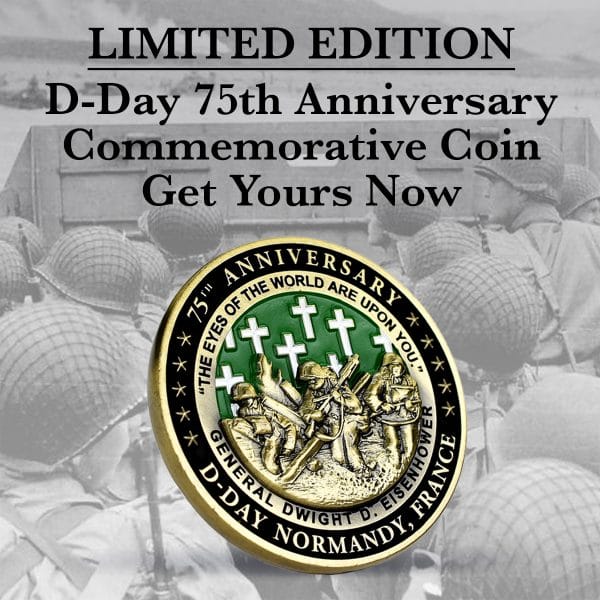After terrorists attacked the United States on Sept. 11, 2001, attention soon turned to whether Fort Bragg troops would be involved in the response.
Residents in the Cape Fear region knew the more accurate question would be how soldiers on the post would take part in what soon became known as the War on Terror.
Here are five ways Fort Bragg responded in the months after the attack.
 Get your D-Day 75th Anniversary Commemorative Coin Here
Get your D-Day 75th Anniversary Commemorative Coin Here
1. Preparing as usual
In the days immediately following the attack, many Fort Bragg soldiers did what they were doing in the days before the attack. They were preparing to deploy anywhere in the world on short notice.
Parachute training jumps started back on the post in less than a week. The regular routine of units getting ready for rapid deployment continued.
2. Limited access
Fort Bragg, which previously had been open to the public, started restricting access after the attacks on the World Trade Center and the Pentagon.
Armed soldiers began stopping and checking vehicles.
Military identification and a Fort Bragg vehicle registration were required to enter Fort Bragg under most circumstances.
The day after the attacks, access to the post had been tightened so much that some people were several hours late getting to work.
3. Start of combat
When a military response to the attacks started in October 2001, special operations forces from Fort Bragg were on the forefront of the campaign against the terrorists.
Donald Rumsfeld, who was secretary of defense, visited Fort Bragg the following month to thank the troops and their families for their role in the war.
Special Forces troops, who help organize and train friendly military forces in foreign countries, were “doing a world-class job,” Rumsfeld said. Some of the soldiers took to horseback as they helped local troops in Afghanistan, he said.
The Special Forces teams also helped point out targets for Air Force and Navy bombers, dramatically increasing the success of their missions, Rumsfield said.
“You have well earned your outstanding reputation,” he told the soldiers. “The world knows why when the president dials 9-1-1, it rings right here in Fayetteville.”
4. Enlistments and re-enlistments
Fort Bragg officials saw a spike in people joining and rejoining the Army in the months following the attacks.
About half the soldiers who had planned to leave the military were changing their minds and re-enlisting, one Army official said.
A career counselor said soldiers were arriving in droves to re-enlist at Fort Bragg’s 82nd Airborne Division. Other units also saw increases.
5. Paratroopers hit the ground
In May 2002, the Army announced that the 18th Airborne Corps headquarters would deploy to Afghanistan.
Gen. Dan K. McNeill, who was then corps commander, said at the time that the move wasn’t surprising.
“I can’t tell you specifically that I saw this very thing coming, but since Sept. 11, I knew eventually we would be doing something,” he said.
By that summer, paratroopers from the 82nd Airborne Division were in Afghanistan for the battle against terrorism.
Thousands of Fort Bragg troops have deployed to the area since then, continuing the fight.
___
© 2019 The Fayetteville Observer
Distributed by Tribune Content Agency, LLC.



